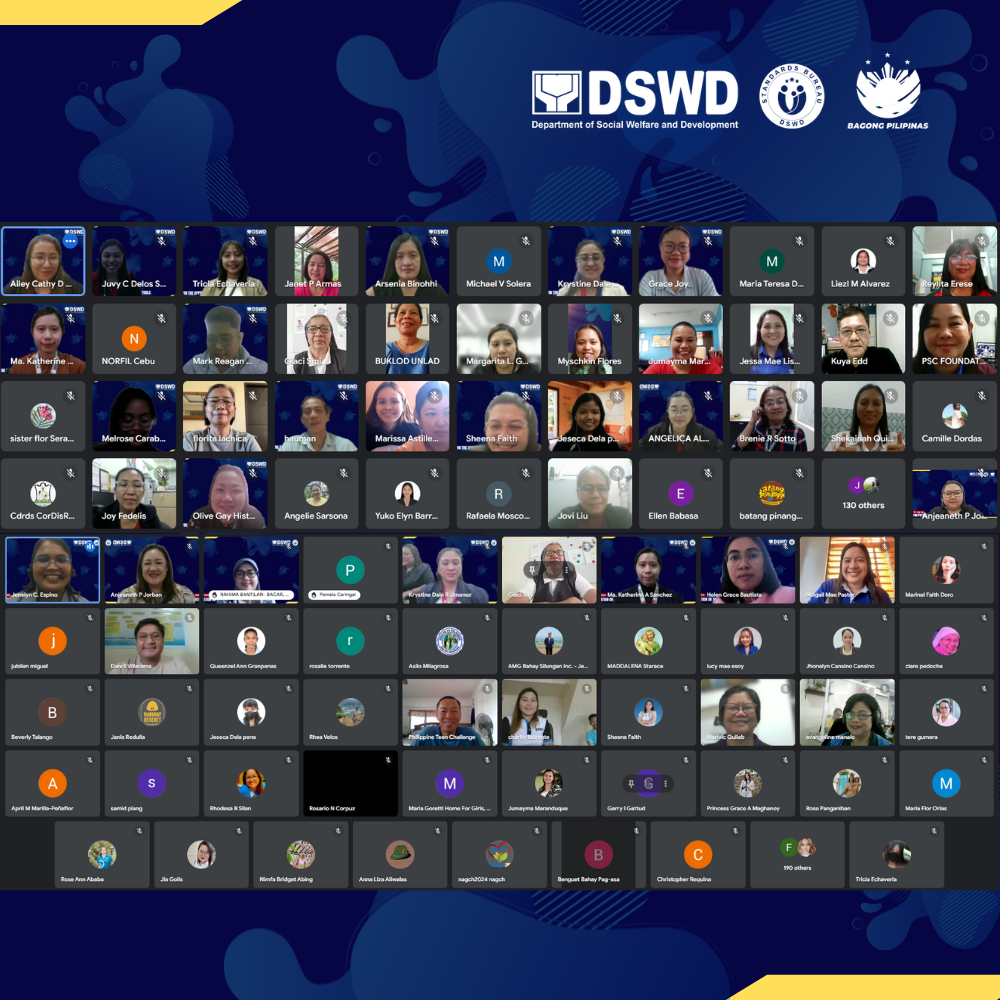Enhancing DSWD’s Regulatory Services through Orientation on Approved Accreditation Tools

In line with the implementation of Memorandum Circular No. 18, series of 2024 and the Harmonized Electronic License and Permit System (HELPS), the Standards Bureau (SB) successfully conducted a two-day webinar and orientation on Newly Approved Accreditation Tools from February 13 to 14, 2025, via Google Meet. This initiative aims to capacitate the FOs Standards Section staff and FO Regional Director’s Account Managers to understand, appreciate and embrace the delivery of regulatory services through technological advancements.
The orientation sessions attracted a diverse array of participants, including staff from DSWD Field Offices, Social Welfare and Development Agencies (SWDAs), and various National Government Agencies (NGAs).
Undersecretary for Regulatory Services, and Institutionalization Development Group (RSIDG) Denise Florence Bernos-Bragas, MD, RSW, extended a warm welcome to all attendees, emphasizing the significance of collaboration among stakeholders in enhancing service delivery.
“As we gather here, we are united by a common goal – to digitize and centralize the delivery of various regulatory services through innovative technology adoption. These transformative changes will not only streamline our processes but also enhance our ability to serve the poor, vulnerable, and disadvantaged sectors of our society,” Usec. Bragas shared.
Session Highlights
The first day of the orientation featured a session led by Ms. Krystine Dale Jimenez, who focused on the Assessment Tool for Residential-Based Social Welfare Development (SWD) Programs and Services. Following her, Ms. Anjeaneth Jorban presented the Assessment Tool for Center-Based SWD Programs and Services. On the second day, Ms. Jorban facilitated a discussion on the Assessment Tool for Child Placement Services, while Ms. Jimenez covered the Assessment Tool for Community-Based SWD Programs and Services.
The sessions provided an in-depth analysis of five vital work areas including Administration and Organization, Program Management, Case Management, Helping Strategies and Interventions, and Physical Structure and Safety. Additionally, participants were introduced to the new Key Result Areas (KRAs).
Consistent with other assessment tools, each session included a score table for each area, along with findings and recommendations derived from focus group discussions (FGDs).
The orientation culminated with remarks from Assistant Secretary for RSIDG, Janet P. Armas, who underscored the significance of the activity in deepening understanding of the approved assessment tools for various SWD programs and services. (MGCBA)
